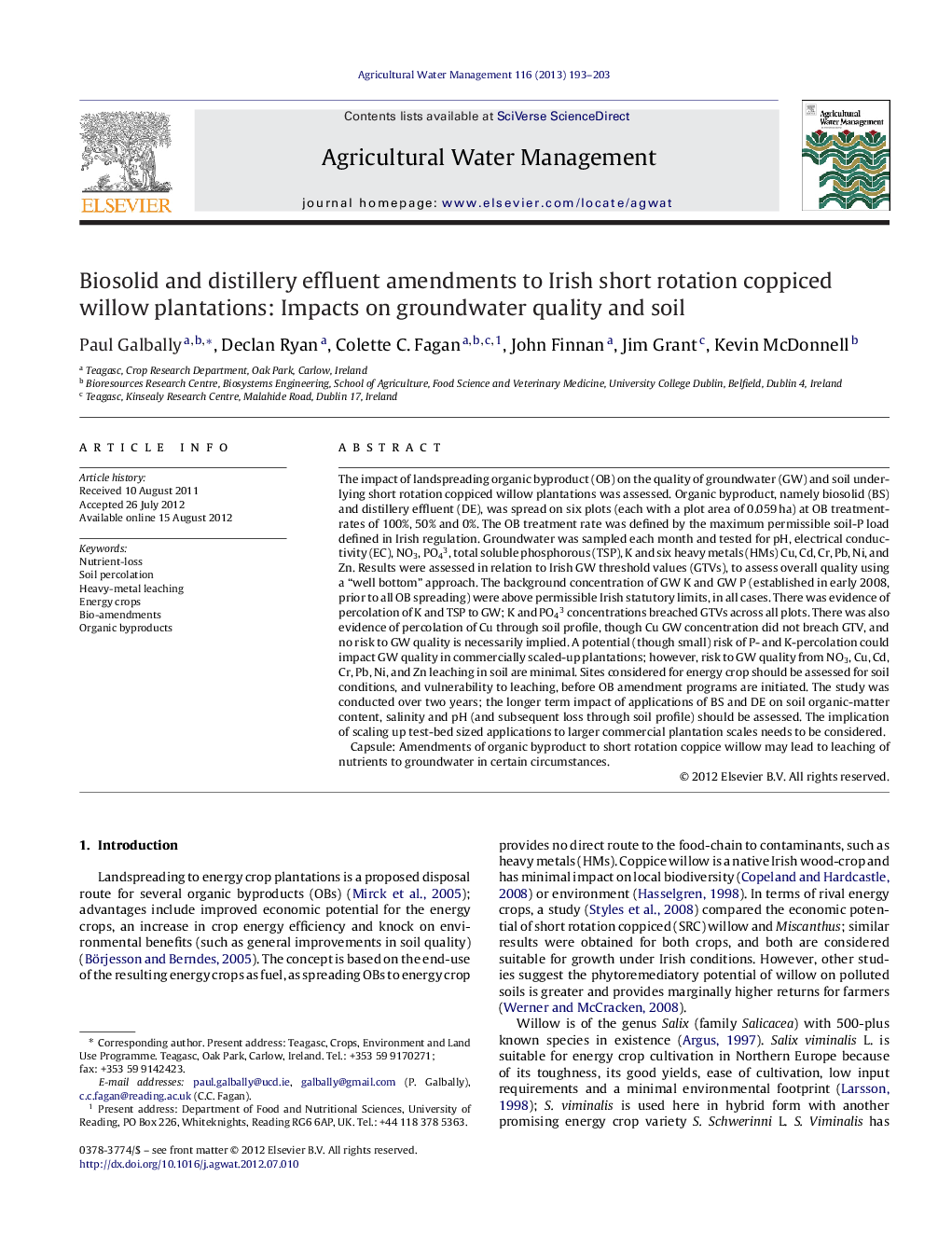| کد مقاله | کد نشریه | سال انتشار | مقاله انگلیسی | نسخه تمام متن |
|---|---|---|---|---|
| 4478978 | 1622963 | 2013 | 11 صفحه PDF | دانلود رایگان |

The impact of landspreading organic byproduct (OB) on the quality of groundwater (GW) and soil underlying short rotation coppiced willow plantations was assessed. Organic byproduct, namely biosolid (BS) and distillery effluent (DE), was spread on six plots (each with a plot area of 0.059 ha) at OB treatment-rates of 100%, 50% and 0%. The OB treatment rate was defined by the maximum permissible soil-P load defined in Irish regulation. Groundwater was sampled each month and tested for pH, electrical conductivity (EC), NO3, PO43, total soluble phosphorous (TSP), K and six heavy metals (HMs) Cu, Cd, Cr, Pb, Ni, and Zn. Results were assessed in relation to Irish GW threshold values (GTVs), to assess overall quality using a “well bottom” approach. The background concentration of GW K and GW P (established in early 2008, prior to all OB spreading) were above permissible Irish statutory limits, in all cases. There was evidence of percolation of K and TSP to GW; K and PO43 concentrations breached GTVs across all plots. There was also evidence of percolation of Cu through soil profile, though Cu GW concentration did not breach GTV, and no risk to GW quality is necessarily implied. A potential (though small) risk of P- and K-percolation could impact GW quality in commercially scaled-up plantations; however, risk to GW quality from NO3, Cu, Cd, Cr, Pb, Ni, and Zn leaching in soil are minimal. Sites considered for energy crop should be assessed for soil conditions, and vulnerability to leaching, before OB amendment programs are initiated. The study was conducted over two years; the longer term impact of applications of BS and DE on soil organic-matter content, salinity and pH (and subsequent loss through soil profile) should be assessed. The implication of scaling up test-bed sized applications to larger commercial plantation scales needs to be considered.Capsule: Amendments of organic byproduct to short rotation coppice willow may lead to leaching of nutrients to groundwater in certain circumstances.
► Organic byproducts (OBs), biosolid and distillery effluent, amended to short rotation coppice willow.
► Impact on groundwater (GW) and soil assessed by analysis of nutrients and heavy metal (HM) concentrations in GW following OB amendment.
► High background levels of P and K in soil and GW and evidence of leaching for both nutrients obtained.
► No evidence of percolation of nitrate or any HMs (excluding Cu) to GW obtained; small increases in some soil-HMs.
► Risks from amendment are low; however, assessment of site required before OB-amendment made.
Journal: Agricultural Water Management - Volume 116, 1 January 2013, Pages 193–203